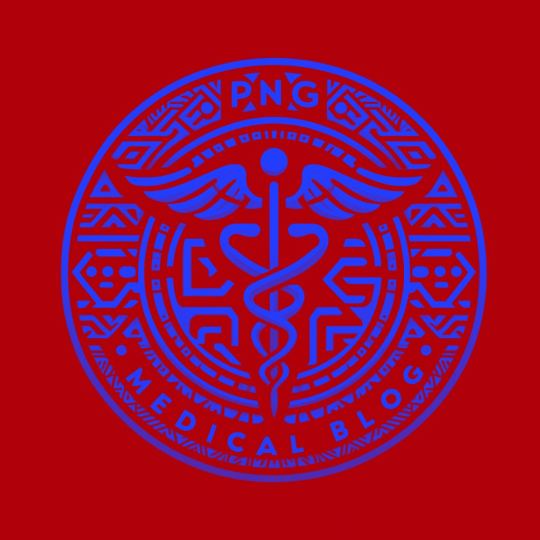#Critical Care Medicine
Text
Communication
This is something that has been on my mind for awhile, but I genuinely feel like the majority of issues with patients and their families could be avoided by taking the extra 5 minutes to explain things clearly and set expectations.
Example: in my work, I commonly take care of complex trauma patients. They have rib fractures, pulmonary contusions, and pain that may make extubation difficult. This may mean reintubation, repeated failure, and need for a temporary tracheostomy. When I work with a patient's family with bad rib injury, I always mention this possibility early on. I have seen way too many people who felt unprepared for such a discussion when this possible outcome isn't mentioned.
Granted, patients and their families can hear what they want to hear. That does happen. However, the more often families are appreciative of understanding possible outcomes and appreciate the information. Really, that's all they have control over when you think about it. They can't control what happened and can't help make their loved one better. They can find agency in knowledge and I think that is something many providers take for granted.
#pablr#pa-c#physician assistant#physician associate#pa-s#pre-pa#caspa#pa school#critical care medicine#medicine#medblr#nurblr#pharmblr#communication in medicine
2 notes
·
View notes
Text
Critical care nurse
Critical care is best defined as care provided in the various ICUs and related units:
Cardiothoracic ICU
Oncology ICU
Neurocare ICU
Pediatric ICU
Neonatal ICU
Cardiac Catheter Labs
Telemetry Units
#study notes#student nurse#studywithme#studyblr#study blog#studying#students#nurses#critical care#critical care medicine#light academia#studygram
5 notes
·
View notes
Text
Critical care medicine services survey form
We are conducting a survey to gather insights from health workers about the state of Critical Care Medicine in Papua New Guinea. Your responses will help us understand the current challenges and areas that need improvement. This survey is anonymous, and your participation is highly appreciated.
The data collected will be summarised and published at the end of the survey.
Instructions:
Please…

View On WordPress
0 notes
Text
Life on the Line: Decoding Critical Care fundamentals the Crucible of the Golden Hour Emergency

Critical Care Medicine is a highly specialized field within healthcare that focuses on the comprehensive management of patients grappling with life-threatening conditions. From severe injuries to complicated illnesses, critical care physicians play an indispensable role in delivering immediate and intensive care to stabilize patients and enhance their chances of recovery. Let's delve deeper into the process of how doctors handle emergencies in this critical situation. That’s why a Fellowship in Critical Care is necessary and very important in today’s healthcare.
The Ticking Clock: Less Time For Action
Critical Care Medicine is characterized by its prompt response to emergent situations. Whether dealing with a trauma victim, a patient in shock, or someone experiencing respiratory failure, time is of the utmost essence. The rapid and decisive actions taken during this critical hour can make a significant difference in a patient's outcome. The ability to make swift decisions and initiate timely interventions is a hallmark of success in the high-stakes environment of critical care.
Collaboration is Key: A Multidisciplinary Approach
In the realm of critical care, collaboration is not just encouraged; it is a necessity. Critical care teams typically consist of intensivists, nurses, respiratory therapists, pharmacists, and other specialists. The synergy of diverse expertise ensures a comprehensive and holistic approach to patient care. This multidisciplinary collaboration enhances the efficiency of interventions, contributing to the overall success in managing critically ill patients.
Precision in Decision Making: The Role of Intensivists
Intensivists, physicians specialized in critical care, stand at the forefront of decision-making. They conduct detailed patient histories, perform suitable diagnostic tests, and make clinical observations to formulate precise treatment plans. The ability to assess and adapt to dynamic situations is a skill honed by these medical professionals, allowing them to navigate the complexities of critical care with finesse.
Continuous Vigilance: The Art of Monitoring
In critical care units, monitoring is not an occasional task; it is a continuous and meticulous process. From vital signs to organ function, every aspect of a patient's status is closely watched. Advanced technology plays a pivotal role, aiding in real-time assessment and enabling immediate adjustments to treatment strategies. The constant vigilance exercised in critical care units ensures that any deviation from the norm is promptly addressed, preventing potential complications.
The Nexus of Research and Education
Ongoing research is the lifeblood of critical care practices. Continuous education and training for healthcare professionals in this field are essential to keep up with evolving standards and technologies. The dynamic nature of critical care demands a commitment to staying abreast of the latest advancements, ensuring that patient care is not only current but also at the forefront of medical innovation.
In conclusion, Medvantage’s Critical Care Medicine course stands as one of the most sort after courses in the realm of healthcare, dedicated to the immediate and intensive care of those facing life-threatening conditions. With a commitment to rapid response, interdisciplinary collaboration, and technological innovation, critical care professionals strive to navigate the complexities of medical urgency and pave the way for improved patient outcomes in the crucial hour of emergency. The delicate dance between time, collaboration, precision, vigilance, and knowledge defines the essence of Fellowship in Critical Care Medicine, making it an indispensable cornerstone in the continuum of patient care.
#Medvantage#Fellowship in Critical Care Medicine#Fellowship in Critical#Critical Care Medicine#Critical Care#Fellowship Course in Critical Care Medicine#Fellowship Course in Critical Care#Course in Critical Care Medicine#Course in Critical Care
0 notes
Text
Unlock Your Potential with the EDIC 1 & 2 Preparatory Courses at 360 Critical Care
Welcome to 360 Critical Care, your gateway to advanced medical education and professional development. Are you ready to take your critical care skills to the next level? Look no further than our highly acclaimed EDIC 1 & 2 Preparatory Courses. The corresponding courses are called “TRICS -Targeted Review of Intensive Care Syllabus” for EDIC-1 and EDIC-2 preparation respectively. In this blog post, we'll explore how our EDIC 1 & 2 Preparatory Courses can unlock your potential and propel your career in critical care medicine.
youtube

Elevate Your Expertise: The field of critical care medicine demands specialized knowledge and skills. EDIC 1 & 2 Preparatory Courses at 360 Critical Care offer a comprehensive curriculum designed to enhance your learning experience while preparing for your EDIC 1 & 2 exams. Whether you're a medical professional seeking to broaden your knowledge or a recent graduate aspiring to excel in critical care, these courses equip you with the tools to provide exceptional success in the exams.
Cutting-Edge Curriculum: Our EDIC 1 & 2 Preparatory Courses are meticulously crafted to encompass the latest advancements and best practices in critical care medicine. Through a combination of interactive lectures and case studies you'll delve into various chapters according to the CoBaTrICEmodel specified in the EDIC-1 & 2 syllabus. Led by renowned faculty and industry experts, you'll receive top-tier education that translates directly into your career success.
Flexible Learning Options: We understand the demanding schedules of healthcare professionals. That's why our EDIC 1 & 2 Preparatory Courses offer flexible learning options to suit your needs. With both online and in-person modules, you can choose the format that aligns with your preferences and availability. Our user-friendly online platform allows you to access course materials, participate in discussions, and interact with instructors at your convenience.
Networking and Collaboration: One of the invaluable aspects of our EDIC 1 & 2 Preparatory Courses is the opportunity to connect with a diverse community of healthcare professionals. Engage in meaningful discussions, exchange ideas, and build lasting relationships with like-minded individuals who share your passion for critical care medicine. These connections can foster collaborations, career opportunities, and lifelong friendships.
Conclusion: Don't miss out on the chance to unlock your potential in critical care medicine. Enroll in our EDIC 1 & 2 Preparatory Courses at 360 Critical Care and embark on a transformative journey of professional growth. Elevate your expertise, stay up-to-date with the latest advancements, and join a vibrant community of critical care professionals. Visit our website at www.360criticalcare.com to learn more and take the first step towards a rewarding career in critical care medicine.
More Info Get in Touch with our Social Media Profiles Facebook, Twitter, YouTube & Linkedin
#medical education#advanced medical education#critical care medicine#EDIC 1 & 2 Preparatory Courses#Youtube
1 note
·
View note
Quote
You're the dumpster fire extinguisher. Good luck.
my boss, when I said work was a dumpster fire today
#I REALLY want this on a t shirt#spork talks#medblr#fellowship#critical care#medicine#pgy5#residency
93 notes
·
View notes
Text
IM OFFICIALLY A DOCTOR IN INTERNAL MEDICINE STARTING RESIDENCY IN OCTOBER !!!
#I DID IT YALL !!!!!!!#residency or whatever you call the years of specialization here its assistanat#i hope ill get into pulmonary and critical care medicine !!!#ANYWAY SO SO SO SO SO SO HAPPY !!!!!!!!!!!#never shutting up about this#i was 6th on 56 !!#med school
43 notes
·
View notes
Text
Me: *having a perfectly good and normal time hanging out with my family*
Brain: Hey what would you do if your mom dropped dead in your kitchen right now.
Me: What—why are you—?
Brain:
Me:
Me: UGH fine I’d make sure she’s flat in her back, check for responsiveness, check a carotid and signs of breathing—*proceeds to run through entire scenario in my head*
Brain: K
Me: WHAT WAS THE POINT OF THAT
#random rambles#working in emergency medicine and critical care just… does things to the brain apparently 🥴#idk why I felt compelled to ramble about this here please just ignore me#I need to figure out how to shut the doomsday button off in my brain lol
24 notes
·
View notes
Text
I know there are many bad takes about Gale on this site, but the worst takes I’ve seen on another social media site in another language are much more abhorrent than anything here tbh, the recent one I’ve seen even gets some popularity among his “fans”... They were basically saying it’s Mystra who make him the humble man he is now, without her influence on him he would be as egotistical as in his god ending, and more than a hundred of reblogs are all thanking Mystra for “training her lapdog so well” for them🤢
Did we even play the same game? Isn’t his god ending a direct result of Mystra making him think he will never be enough as he is, and he can only find his self-worth through gaining more power? Didn’t Tara say he’s not himself anymore and she would no longer be his companion in his god ending, she knew him long before Mystra made him her chosen, he was powerful enough before his relationship with Mystra, if he’s anything like god!Gale at the time wouldn’t Tara just leave him? I’d imagine he would have been more confident and had a more stable self-image if Mystra had never contacted him, therefore he didn’t even need the Gale of Waterdeep persona. He would always have been Gale Dekarios in that timeline. And people glorifying Mystra’s grooming and abuse towards him and unironically calling him “her lapdog” is just... I have no words. But what do you expect from an online space that’s infested with terfs and radfems? They just won’t recognize or acknowledge any abuse from women towards men...
#rant#cw: grooming#cw: abuse#fandom critical#and I lost count of how many takes calling him an abled person on that site#they were like#I don't care that he’s suicidal depressed autistic and chronically ill#compared to a certain elf he’s an abled person and trauma-free!#yikes zero awareness of their own ableism#fuck mystra#don't want to put this in his main tags#I didn’t mean to say that every person who praised mystra here is a radfem/terf#but most people there do share essentialist view about gender and sex#they are very hostile to queer men in fandoms as well#there are anon confession blogs and most of them are males dni#and there’s almost zero content of wyll in the fandom there#racism here is already bad but it’s much worse there and no one talk about it#they liked it when larian made gale doesn’t leave when you denied him medicine#they liked it when they removed the persuasion check in the drow twins scene#it’s kind of a power trip to them#they liked it when they can bully a man they claimed to love and face no consequences#it’s not d/s it’s downright abusive#they’re really saying mystra did nothing wrong in another garbage take#they’re going to excuse a god who sexually exploited a mortal like a tool and then cast him aside because a honest mistake he made#which the said god could easily prevent it by telling him the knowledge he didn’t have about the true nature of the orb#then tell him to kill himself for forgiveness when the god can foresee the outcome which would be unleashing a illithid infestation#the power inbanlance between them is so enormous that no real life situation can be compared to it#he literally can’t say no in that relationship#they’re going to excuse all these just because the god is female presenting#women can’t cause serious harm as men do isn’t a feminist stance at all as they think
7 notes
·
View notes
Text
Fall
I am very unclear where August went. Well, actually, I KNOW where it went. I was super busy with volunteer stuff, work, etc that I just...forgot about everything else. *face palm*
We have several new hires at work which is great BUT it is, as you might imagine, always challenging to orient/train someone. Not that I do not like it (I love teaching) but to do it well is sort of exhausting to be honest.
I've had a couple of shifts the past 2 weeks that were some of the more challenging in my career for a variety of reasons. Partly because of working with families and partly because of clinical complexity. The families, I should add, were fine. Great, actually. Very appreciative and kind - very willing to thank me and the team. While the recognition and gratitude are appreciated, it some times makes me feel....unsettled? I am just doing my job - that doesn't require exceptional thank yous. I guess I just don't internally handle compliments well.
My clinically complex patients have been SICK. Some of the sickest I have seen in a while. They have challenged me in many ways and, for the most part, I am proud with how I handled those situations and the decisions that I made. Those cases mentally bankrupting though. Not every day or patient is like this but the ones that are remind me that I need to take time for myself.
I am OFF for the holiday weekend so I shall be cleaning my house, gardening, and getting ready for FALL. My FAVORITE season ever. I've already had 2394820394839 PSLs so there is that. I also have to at least attempt to value my health and move more. I generally do an ok job sticking to my gluten restrictions (I developed an intolerance as an adult yaaaaaaay) but I do not MOVE enough. Probably doesn't help that 99% of my relaxing hobbies are sedentary (reading, painting, crafting, napping, etc).
That is all for now - here is a premature gif of Pooh bear because the second PSLs come out, it is autumn to me.

#pablr#pa-c#physician assistant#physician associate#pa-s#pre-pa#caspa#gre#grad school#health care careers#medicine#medblr#pa school#critical care medicine
1 note
·
View note
Note
are u going to watch candela obscura chapter 2?
glad you asked! probably not right now - school has been very very tiring recently and i'm getting a lot of joy out of nier:automata in my small amounts of free time. i've been on my surgery rotation after finishing an internal medicine rotation so things are really dicey in the Staying Alive department. fulfilling! but also killing me
i def want to watch it eventually but chapter 2 is prob something that just gets added to the end of my catch-up list (along with c2 and all the one shots). it feels like unfortunate timing bc marisha is in this chapter but the heart wants what it wants and right now my heart wants sleep and biddy games ¯\_(ツ)_/¯
#i have to be careful not to turn my special interest into something that feels like a chore#and watching c3 has approached that a little bit in the last two weeks so i just need a short little break#don't get me wrong i'm still OBSESSED i'm just also tired dkfjsdf#anonymous#ask#answered#critical role#candela obscura#cr lb#personal#medicine
11 notes
·
View notes
Text
Critical Care Medical journey to Sir Joseph Nombri Kundiawa Provincial Hospital 2021.
I was invited by Dr. Bobby Wellsh (young enthusiastic, energetic Emergency Physician), with the blessing of the office of Director Curative (a/DCHS Dr. Raymond Saulep), and final authorization by the office of Simbu Provincial Health Authority Chief Executive Officer, Dr. Francis Wandi to their institution in the year 2021.
Dr. Wellsh did his postgraduate Diploma in Anaesthesia/Intensive Care…

View On WordPress
0 notes
Text
Brain Death New Protocol 2023
Pediatric and Adult Brain Death/Death by Neurologic Criteria Consensus Guideline | Neurology
Pediatric and Adult Brain Death/Death by Neurologic Criteria Consensus Guideline
Report of the AAN Guidelines Subcommittee, AAP, CNS, and SCCM
2 notes
·
View notes
Text
The Significance of Online Fellowship Programs in Enhancing Patient Survival Rate in Emergency Situations

A Multi focal Medical Perspective by MedVantage In the realm of healthcare, the ability to provide timely and efficient critical care in trauma and emergency situations is paramount. These situations often arise suddenly and require swift, expert intervention to maximize the chances of patient survival rate and recovery.
1.Expedited Medical Evaluation: The first step in providing critical care in trauma and emergency situations is a rapid and accurate assessment of the patient's condition. Healthcare providers must quickly identify life-threatening injuries or illnesses and prioritize interventions accordingly. The primary survey (ABCs: Airway, Breathing, Circulation) is essential to ensure that the patient's vital functions are stable.
2.Hemodynamic Control and Maintenance: Once the initial assessment is complete, the focus shifts to stabilizing the patient's condition. This may involve interventions such as securing the airway, providing oxygen or mechanical ventilation, controlling bleeding, and administering medications to support blood pressure and heart function.
3.Medical Team Coordination: Effective teamwork is crucial in trauma and emergency care. A multidisciplinary team, including physicians, nurses, paramedics, and other healthcare professionals, must work together seamlessly to provide the best possible care. Clear communication and well-defined roles are essential.
4.Medical Imaging for Diagnosis and Evaluation: Diagnostic imaging, such as X-rays, CT scans, and ultrasounds, plays a vital role in assessing and diagnosing trauma patients. These tools help identify injuries, fractures, and internal damage, enabling healthcare providers to make informed decisions regarding treatment.
5.Medical Hemostasis and Bleeding Management: Hemorrhage is a leading cause of death in trauma cases. The prompt control of bleeding is essential to prevent further deterioration of the patient's condition. Techniques like direct pressure, tourniquets, and hemostatic agents are used to manage hemorrhage.
6.Pain Control and Analgesia: Trauma and emergency patients often experience significant pain and discomfort. Effective pain management is essential to reduce suffering and improve patient cooperation during procedures and treatments.
7.Fluid Resuscitation: Intravenous fluids are administered to maintain blood pressure and ensure adequate perfusion of vital organs. The choice of fluids and their administration rates must be carefully tailored to the patient's condition.
8.Surgical Intervention: In some trauma cases, surgical intervention may be necessary to repair internal injuries or fractures. Surgeons may need to perform life-saving procedures, such as exploratory laparotomy, to assess and treat intra-abdominal injuries.
9.Critical Care Units: For patients with severe trauma or those who require ongoing intensive care, transfer to a specialized critical care unit, such as an ICU or a trauma center, may be necessary. These units are equipped with advanced monitoring and life-support equipment.
10.Rehabilitation and Long-Term Care: Once a patient's condition stabilizes, the focus shifts to rehabilitation and long-term care. This may involve physical therapy, occupational therapy, and psychological support to help the patient regain function and quality of life.
In conclusion, providing Fellowship in Critical Care, helps in trauma and emergency situations is a complex and multifocal endeavor. Swift assessment, efficient stabilization, and a coordinated approach are essential to improve patient outcomes. Healthcare professionals in these settings must be well-prepared, trained, and equipped to deliver life-saving interventions to enhance our ability to save lives in these high-stress situations.
#Fellowship in Critical Care Medicine#Critical Care Medicine#Fellowship in Critical Care#Course in Critical Care Medicine#Fellowship Course in Critical Care#Critical Care#Critical Care Fellowship#Fellowship Course#Medvantage
0 notes
Text
I thought I saw a post with a link to an RCT showing a benefit (either to mortality or to duration of illness) to early initiation of vasopressin in septic shock patients. I thought I saved it. But for the love of God I can't find it now that I actually want to read. I didn't like it, I didn't draft it, I didn't reblog it. It's not in my Twitter bookmarks or reddit saved posts either. I can't even find it on Google, Google Scholar or PubMed. Did I just hallucinate this paper? Can someone help me out if they know this RCT exists?
#vasopressin#shock#septic shock#critical care#medicine#rcts#literature#feeling real fuckin irrealis right now
6 notes
·
View notes
Text
Wish me luck today I’m giving the presentation about death and dying in the icu that I’ve spent my whole heart, soul and pussy putting together
#…watch I ruin it by getting nervous and talking too fast or saying um too much#I hate hate hate public speaking#and am anxious since I know some people in the critical care world are allergic to the word ‘die’#despite the fact that many of our patients do just that#just because you want to ignore the problem doesn’t mean there isn’t a problem#this is about palliative medicine and death with dignity by the way
5 notes
·
View notes